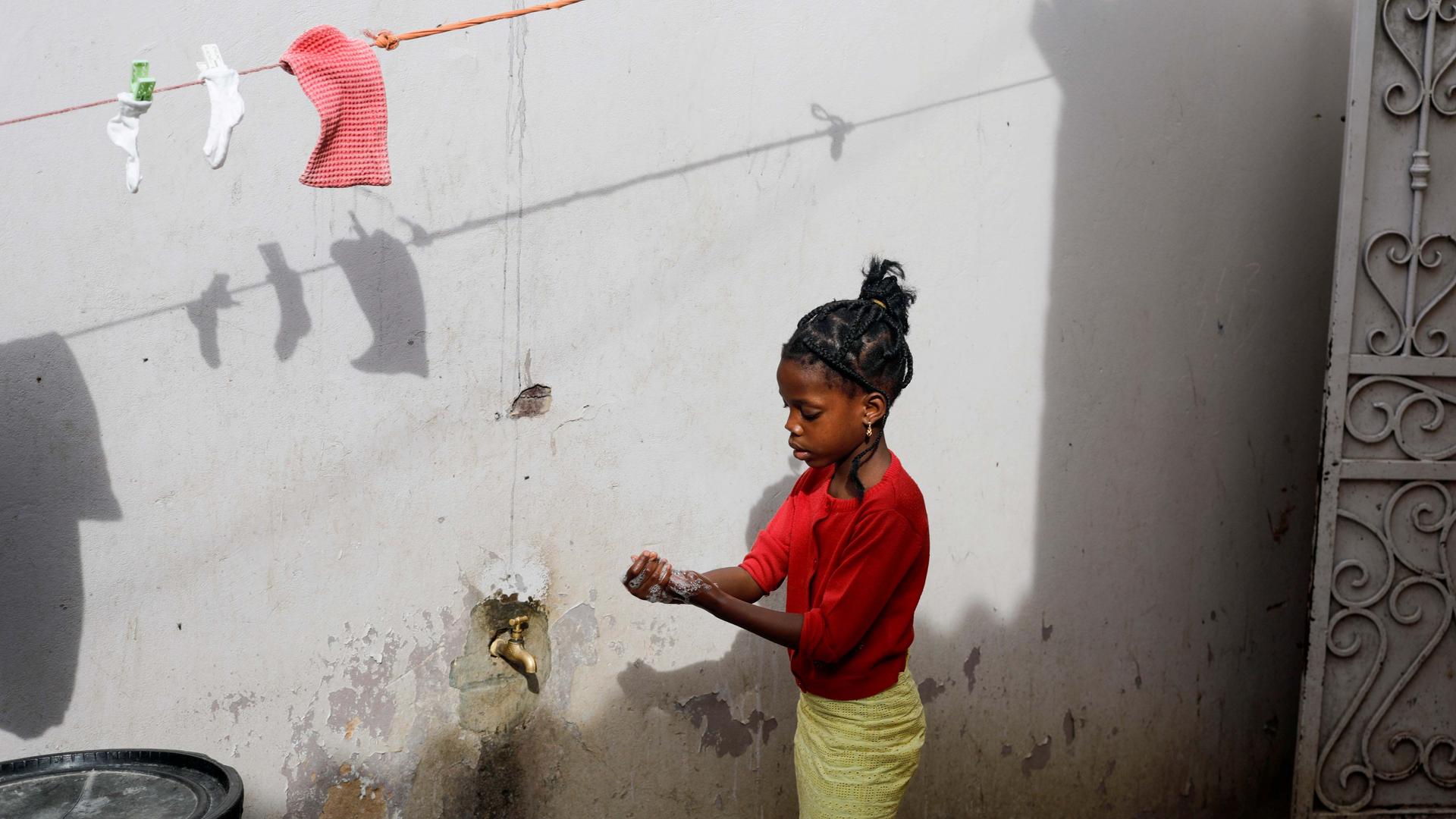A girl washes her hands at the entrance of her parents’ house in Pikine, on the outskirts of Dakar, Senegal, on March 9, 2020.
The work of disease detectives — people who meticulously trace individuals exposed to illness — has been key to combatting coronavirus outbreaks in many parts of the world. But in the US, “contact tracing,” as it’s known, has lagged.
Many health care professionals with expertise tracing outbreaks in countries like Haiti and Liberia say the lack of contact tracing is a missed opportunity for the US to get the outbreak under control.
Dr. Sheila Davis is the chief executive officer of Partners in Health, a nonprofit global health organization that operates in poor communities, particularly in West Africa. It first opened in Haiti in 1987. The group is now advising the state of Massachusetts on contact tracing.
Davis oversaw contact tracing for the aid group in West Africa during the 2014-2015 Ebola outbreak. She spoke to The World’s host Marco Werman about lessons learned in the developing world that may help the US now.
Related: COVID-19: The latest from The World
Marco Werman: Dr. Davis, tell us about one specific contact-tracing experience you’ve been part of outside the US that might teach something about what we need to do today to understand how the coronavirus is spreading.
Dr. Sheila Davis: In Sierra Leone, in particular, we were in very much a hot spot and knew that people were not necessarily coming forward in the community based on fear and unknown factors of what happens when you went into these Ebola centers. And often people did not come back out alive. So we instituted, with our survivors, people who survived Ebola would go out into the community. Once we identified somebody with Ebola, they would go out into the community and do contact tracing, which basically means finding out: Who has that person been around? Where have they been? Have they traveled far? And then it becomes a detective investigation of widening the circle around that person to try to figure out who they could have been infected by or who they could have infected.
Basically, it’s a series of interviews with individuals and getting them to essentially strain their memories. Where were they? Who were they with? So contact tracing for Ebola, I understand, is pretty different. What lessons does it offer, though?
It can be tedious work, but it’s still very, very important. It’s public health basic 101 that you have to combat and see where people are living, where they’re coming from, to try to stop transmission. We can’t wait for people to come to the Ebola treatment unit, just as we shouldn’t be waiting for people to show up in the hospitals in the US who were ill. You actually have to go out and find them.
Related: As coronavirus spreads, poor communities in Kenya are left vulnerable
What about the experience of contact tracing in Haiti with cholera and tuberculosis? What can we learn there?
Engaging the community and having the community be part of the effort is critical. I think in places we work with TB and with cholera, we’re already working in those communities. So we were well-known. Obviously, with COVID-19, this is a little bit different, certainly because of the need for a lot of this to happen in the US virtually. Ebola was easier in some sense — — cholera and TB even — in terms of distance away from somebody. But it’s still a lot of the core components of doing this intensive detective work and really doing it in the community and trying to prevent transmission by testing people — and most importantly, providing social support. When we’re asking people to isolate themselves, but they have no way of getting food or water, they’re not going to be able to make that choice to isolate, prevent transmission to others.
Related: As coronavirus spreads, Zimbabwe health care workers strike over vital equipment
What is your best disease detective story about contact tracing where you had a real “a-ha” moment and pieced all sorts of different narratives together?
I recently was in Peru with our team based in Lima, and an amazing group of Peruvian health professionals. They are doing phenomenal outreach in terms of doing local chest X-ray clinics in the very rural parts of the communities and then sending community health workers up through these mountains to actually track people down — and through these hills. And they can go and find people and connect people to care in a way that, in this century, would be considered astounding. And these very community health workers who are so committed to their communities will climb these hills for hours to literally go and find somebody and convince them to come in and be tested as well.
This interview has been condensed and edited for clarity.
